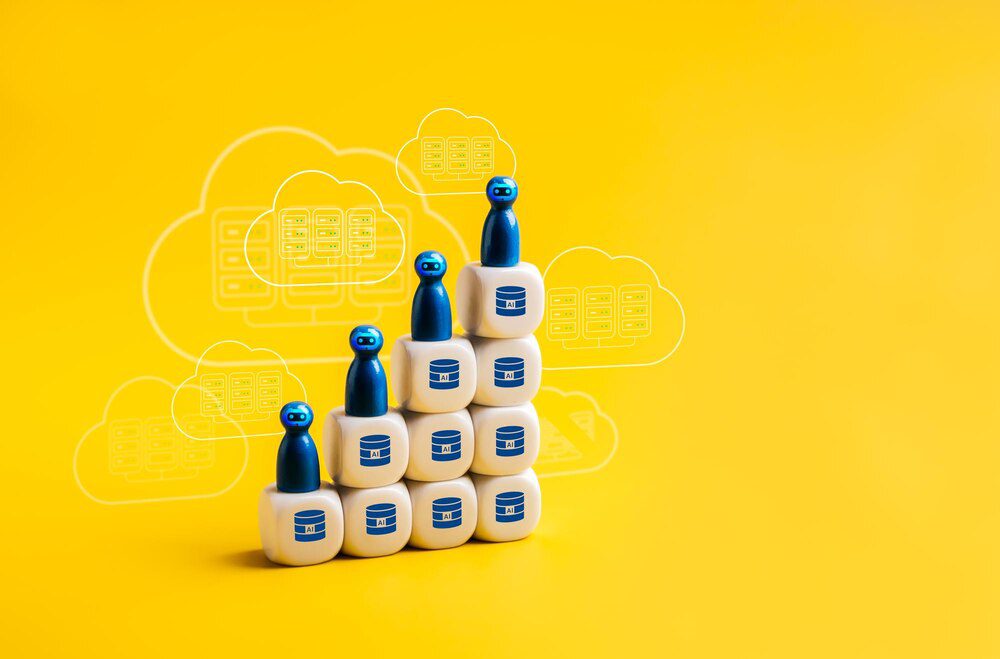Executive Summary
The Story So Far
Why This Matters
Who Thinks What?
Top Software-as-a-Service (SaaS) Customer Relationship Management (CRM) platforms are fundamentally reshaping how businesses approach their sales and marketing strategies, enabling unprecedented levels of efficiency, personalization, and growth. These cloud-based solutions, accessible anywhere, anytime, empower organizations of all sizes to centralize customer data, automate critical processes, and gain actionable insights, ultimately driving stronger customer relationships and accelerated revenue generation. By integrating disparate functions into a unified system, SaaS CRM platforms are proving indispensable for companies seeking to optimize their customer journey from initial contact to long-term loyalty.
What is SaaS CRM?
SaaS CRM refers to customer relationship management software delivered over the internet, accessible via a web browser, rather than installed on local servers. This model eliminates the need for companies to manage hardware, software installations, or maintenance, shifting the operational burden to the vendor. Businesses pay a subscription fee, gaining immediate access to powerful tools designed to manage and analyze customer interactions and data throughout the customer lifecycle.
This approach offers significant advantages over traditional on-premise CRM systems, including lower upfront costs, faster deployment, and automatic updates. It also provides unparalleled scalability, allowing businesses to easily adjust their CRM capacity as their needs evolve. The cloud-native nature ensures that teams can collaborate effectively, regardless of their physical location.
Core Functionalities Driving Transformation
Modern SaaS CRM platforms are feature-rich, offering a suite of tools that address the entire customer journey. These functionalities are engineered to streamline operations, enhance data visibility, and foster more meaningful customer engagements. Understanding these core components is key to appreciating their transformative power.
Contact and Account Management
At its heart, CRM excels at organizing and managing all customer and prospect information in a single, accessible database. This includes contact details, communication history, purchase records, and service interactions. Comprehensive account management provides a 360-degree view of each customer, enabling more informed and personalized interactions.
Lead and Opportunity Management
CRM systems provide robust tools for tracking leads from initial capture through qualification and conversion. They allow sales teams to prioritize leads, assign them to the appropriate representatives, and monitor their progress through the sales pipeline. Opportunity management further refines this, helping to track potential deals and their associated values.
Sales Automation
Sales automation features significantly reduce the administrative burden on sales teams, allowing them to focus more on selling. This includes automating tasks such as email follow-ups, meeting scheduling, and proposal generation. By streamlining repetitive processes, CRM boosts sales productivity and ensures consistency in communication.
Marketing Automation
Integrated marketing automation capabilities allow businesses to design, execute, and measure multi-channel campaigns. This includes email marketing, social media management, and content distribution. Marketing automation ensures timely and relevant communication, nurturing leads through various stages of the buyer’s journey.
Analytics and Reporting
A crucial component of modern CRM is its ability to generate insightful reports and dashboards. These tools provide real-time data on sales performance, marketing campaign effectiveness, customer service metrics, and more. Data-driven insights empower businesses to identify trends, optimize strategies, and make better decisions.
Revolutionizing Sales Operations
SaaS CRM platforms inject unprecedented efficiency and intelligence into sales processes, fundamentally changing how sales teams operate. They move sales from a reactive to a proactive and highly strategic function.
Streamlined Sales Process
CRM platforms provide a clear, standardized framework for managing the sales pipeline. Sales representatives can easily track where each prospect stands, identify bottlenecks, and prioritize actions. This visibility ensures that no lead falls through the cracks and that every opportunity is pursued effectively.
Enhanced Customer Insights
With all customer data consolidated, sales teams gain deep insights into customer preferences, past interactions, and potential needs. This enables them to tailor pitches, recommend relevant products or services, and build stronger rapport. Personalized engagement often leads to higher conversion rates and increased customer satisfaction.
Improved Sales Productivity
By automating administrative tasks, CRM frees up sales professionals to spend more time on high-value activities like selling and relationship building. Features such as automated data entry, task reminders, and communication templates significantly boost efficiency. This direct impact on productivity translates into more deals closed.
Better Sales Forecasting
Leveraging historical data and current pipeline information, CRM systems provide powerful forecasting tools. Sales managers can generate more accurate predictions of future revenue, enabling better resource allocation and strategic planning. This data-driven approach minimizes guesswork and supports more reliable business projections.
Transforming Marketing Strategies
The impact of SaaS CRM on marketing is equally profound, allowing for more targeted, efficient, and measurable campaigns. It shifts marketing from broad strokes to precise, customer-centric engagements.
Personalized Campaigns
CRM data allows marketers to segment their audience with precision, creating highly personalized campaigns that resonate with specific customer groups. This level of personalization, from email content to product recommendations, significantly increases engagement and conversion rates. It moves beyond generic messaging to speak directly to individual needs.
Efficient Lead Nurturing
Marketing automation within CRM platforms enables the creation of sophisticated lead nurturing workflows. These automated sequences deliver relevant content to prospects at different stages of the buying journey. This continuous, targeted communication keeps leads engaged and guides them towards a purchase decision without constant manual intervention.
Campaign Tracking and ROI Measurement
CRM provides comprehensive tools to track the performance of marketing campaigns in real-time. Marketers can monitor open rates, click-through rates, conversions, and ultimately, the return on investment (ROI) for each initiative. This data empowers teams to optimize campaigns on the fly and allocate resources more effectively to successful strategies.
Enhanced Customer Segmentation
Beyond basic demographics, CRM allows for dynamic segmentation based on behavior, purchase history, engagement levels, and other critical data points. This granular understanding of the customer base enables marketers to craft hyper-targeted messages and offers, maximizing their impact and relevance.
The Synergy of Sales and Marketing (Smarketing)
One of the most powerful aspects of top SaaS CRM platforms is their ability to break down traditional silos between sales and marketing departments. By providing a shared view of customer data and a unified platform for managing interactions, CRM fosters unprecedented collaboration. Marketing can see which leads convert best, and sales can understand the journey a lead took before engaging. This alignment, often termed “Smarketing,” ensures a seamless customer experience and optimizes the entire revenue generation process.
Key Benefits for Businesses
Beyond specific functional improvements, SaaS CRM offers overarching business advantages. These include enhanced scalability, allowing platforms to grow with a company’s needs without significant infrastructure investment. Cost-effectiveness is another major draw, as the subscription model replaces large capital expenditures with predictable operational costs. Furthermore, the accessibility of cloud-based platforms ensures that teams can work from anywhere, fostering flexibility and resilience. With robust security measures implemented by leading vendors, data protection is also a core benefit.
The Future of CRM: AI and Hyper-Personalization
The evolution of SaaS CRM continues at a rapid pace, with artificial intelligence (AI) and machine learning (ML) at the forefront. AI-powered CRM is moving towards predictive analytics for sales forecasting, intelligent lead scoring, and hyper-personalized customer interactions driven by behavioral data. These advancements promise even greater efficiency, deeper insights, and the ability to anticipate customer needs proactively, further cementing CRM’s role as a cornerstone of modern business strategy.
In essence, top SaaS CRM platforms are no longer just tools for managing customer data; they are strategic assets that fundamentally redefine how businesses engage with their market. By unifying sales and marketing efforts, providing deep customer insights, and automating critical processes, these platforms empower organizations to unlock significant growth, build lasting customer relationships, and maintain a competitive edge in an increasingly digital landscape.








